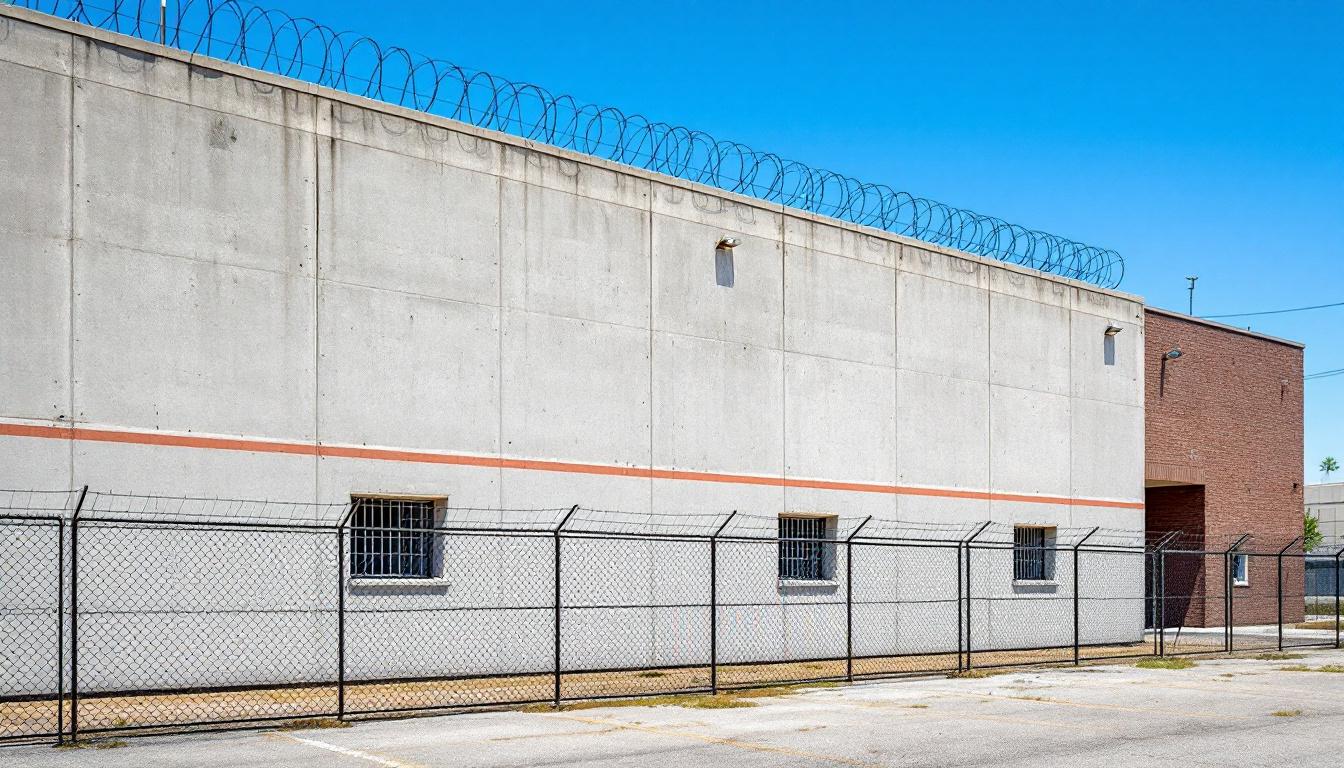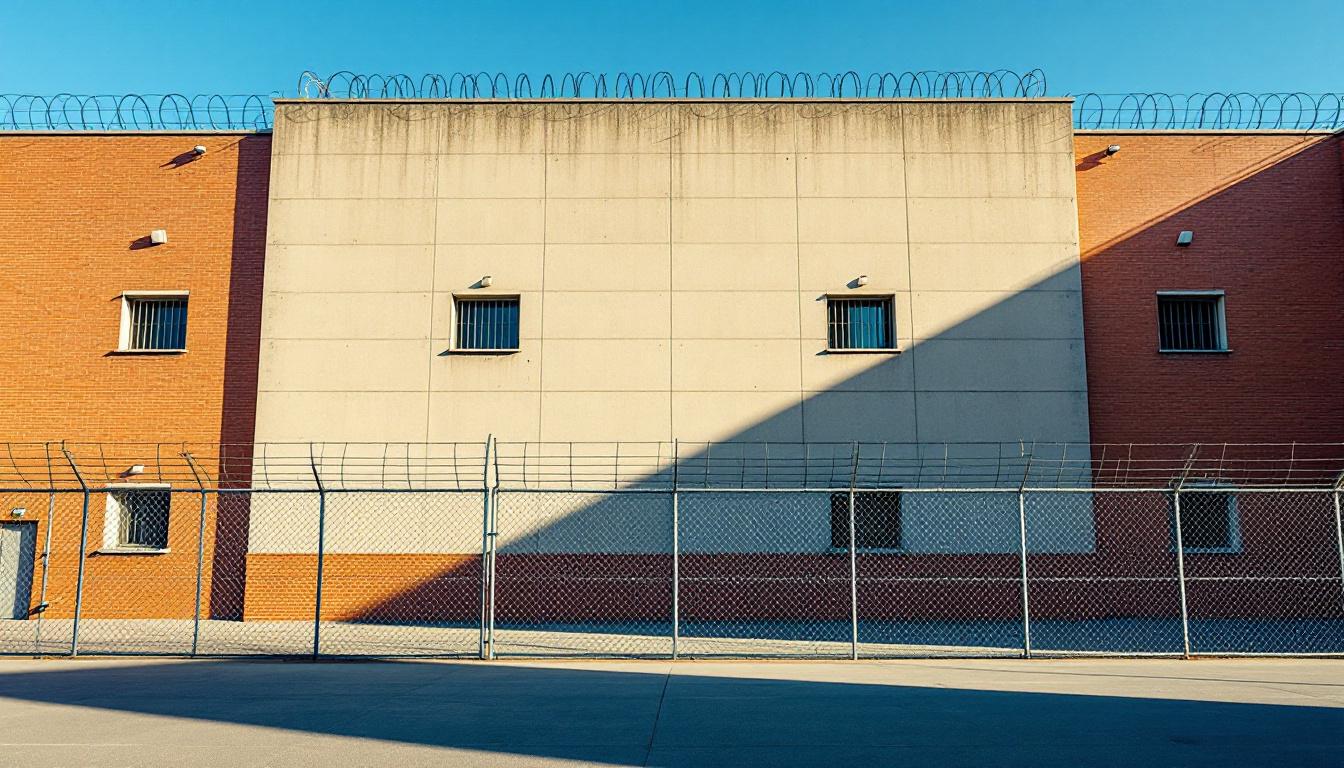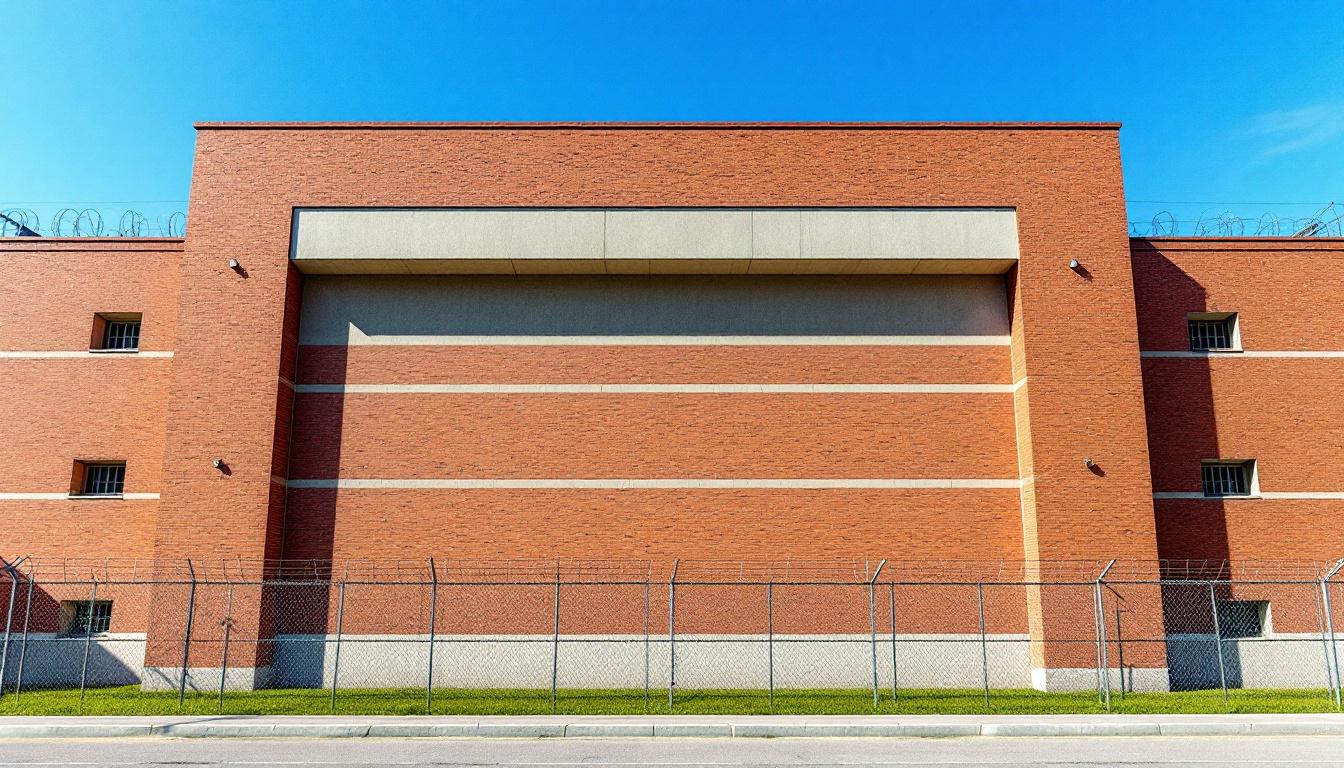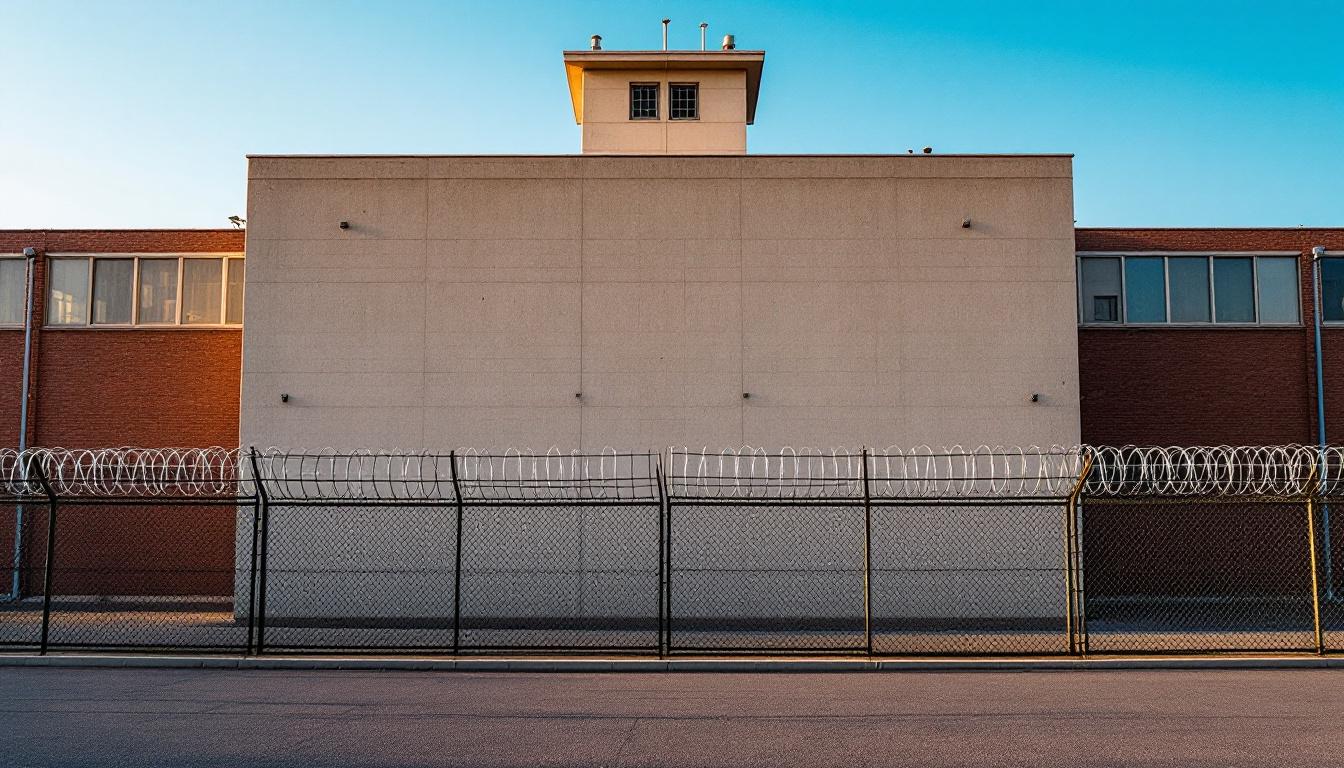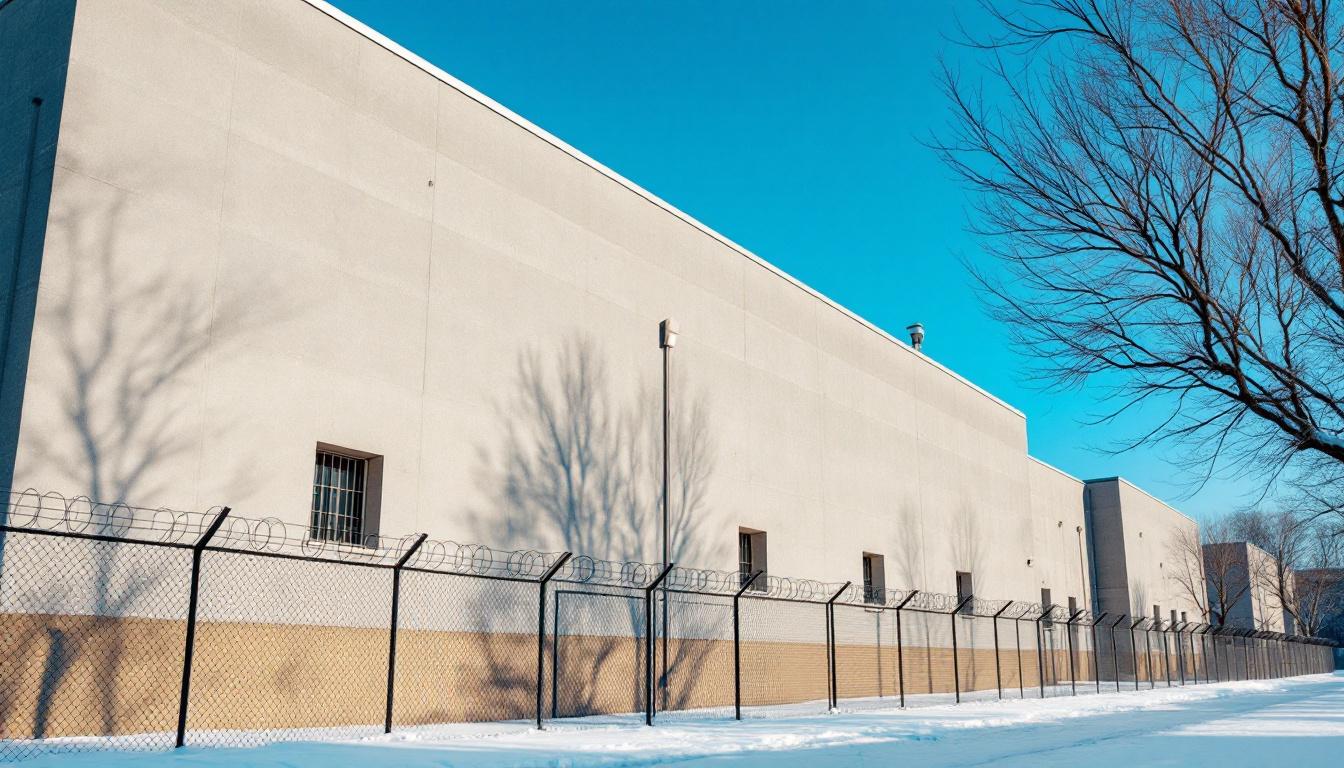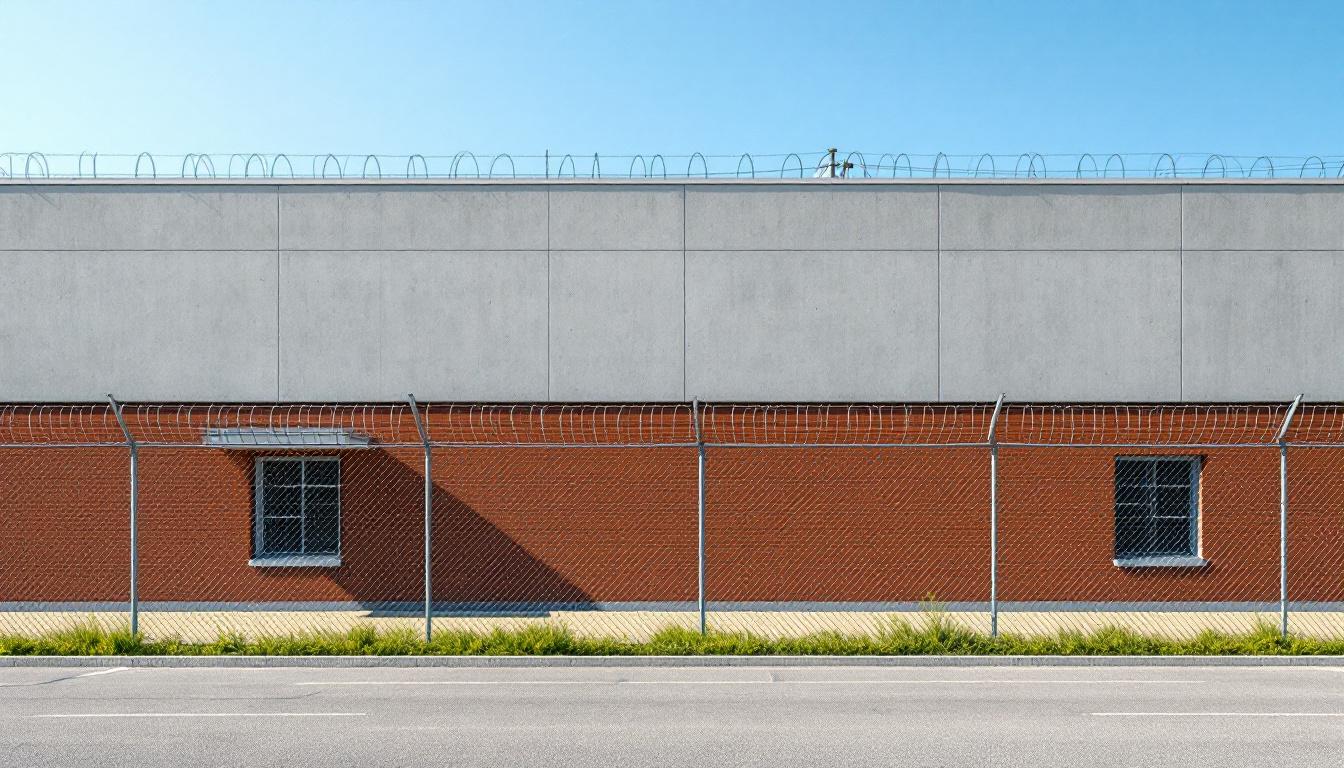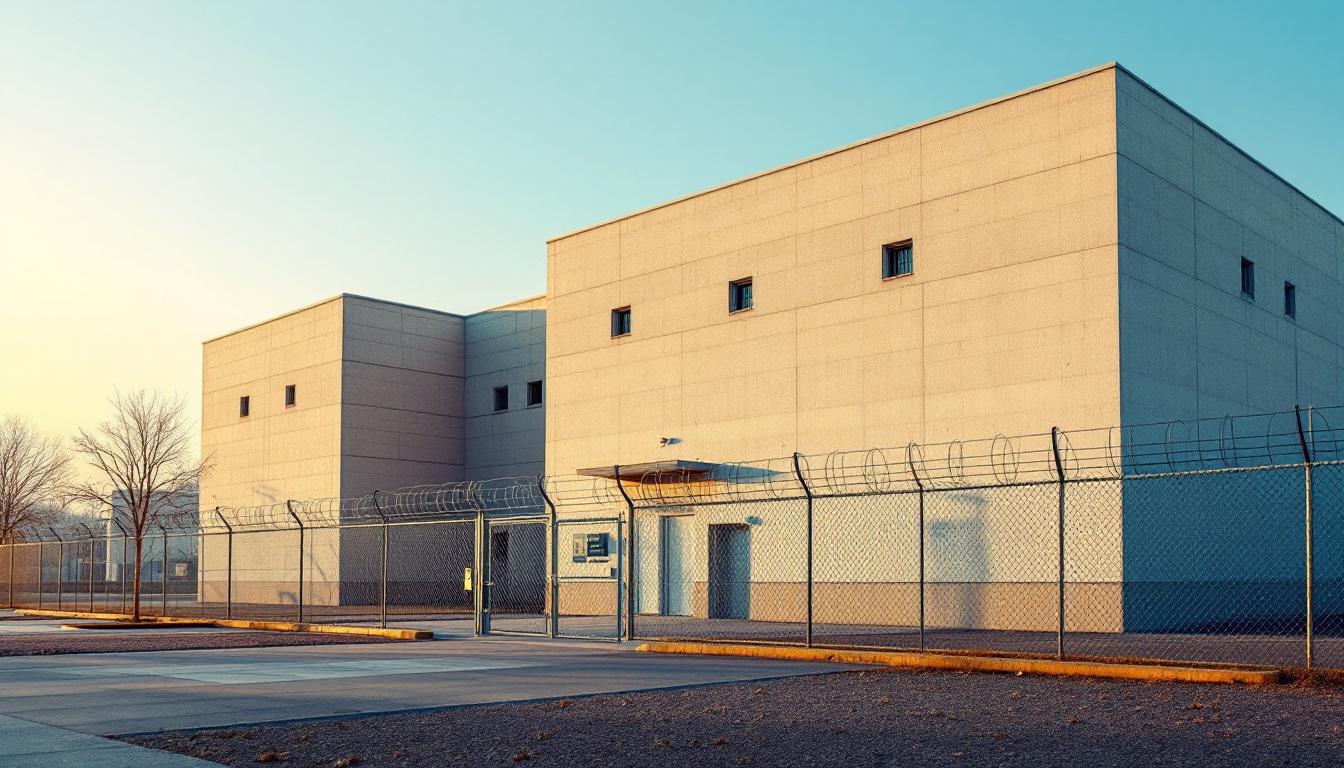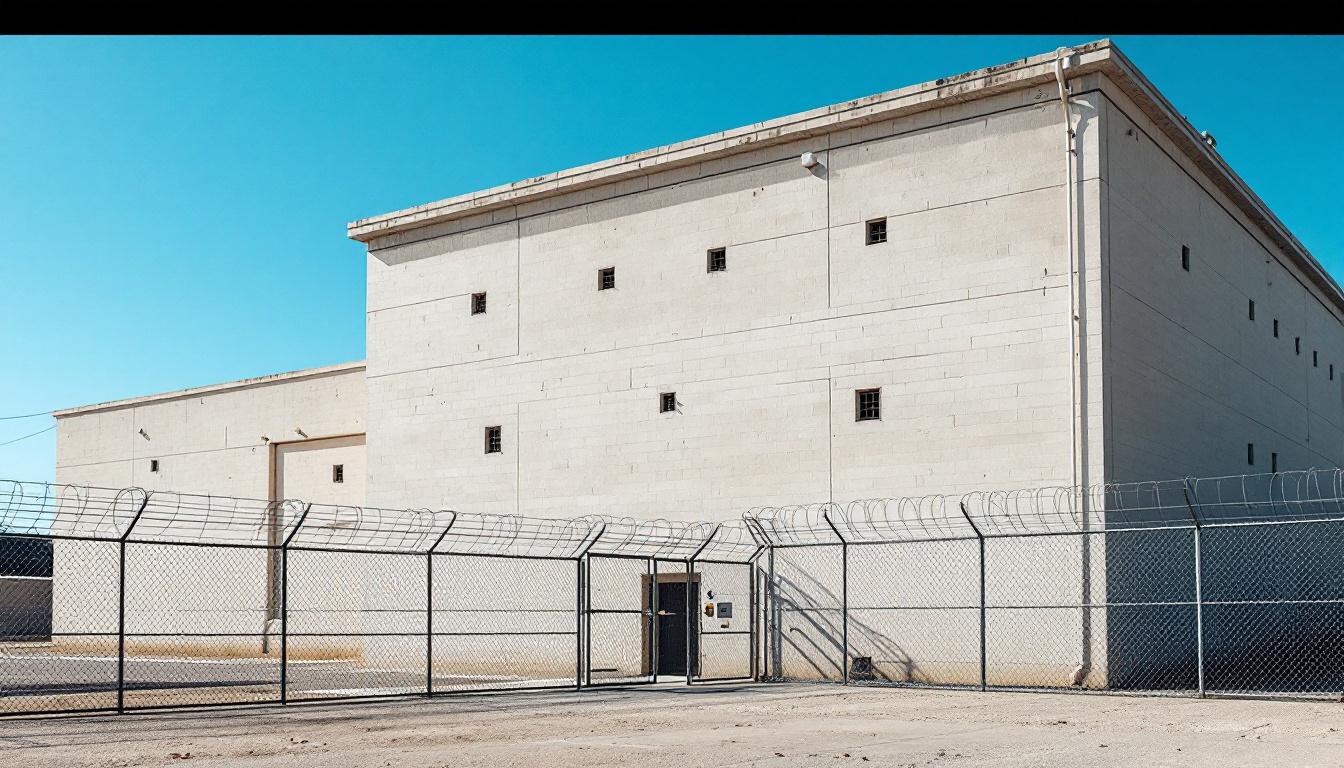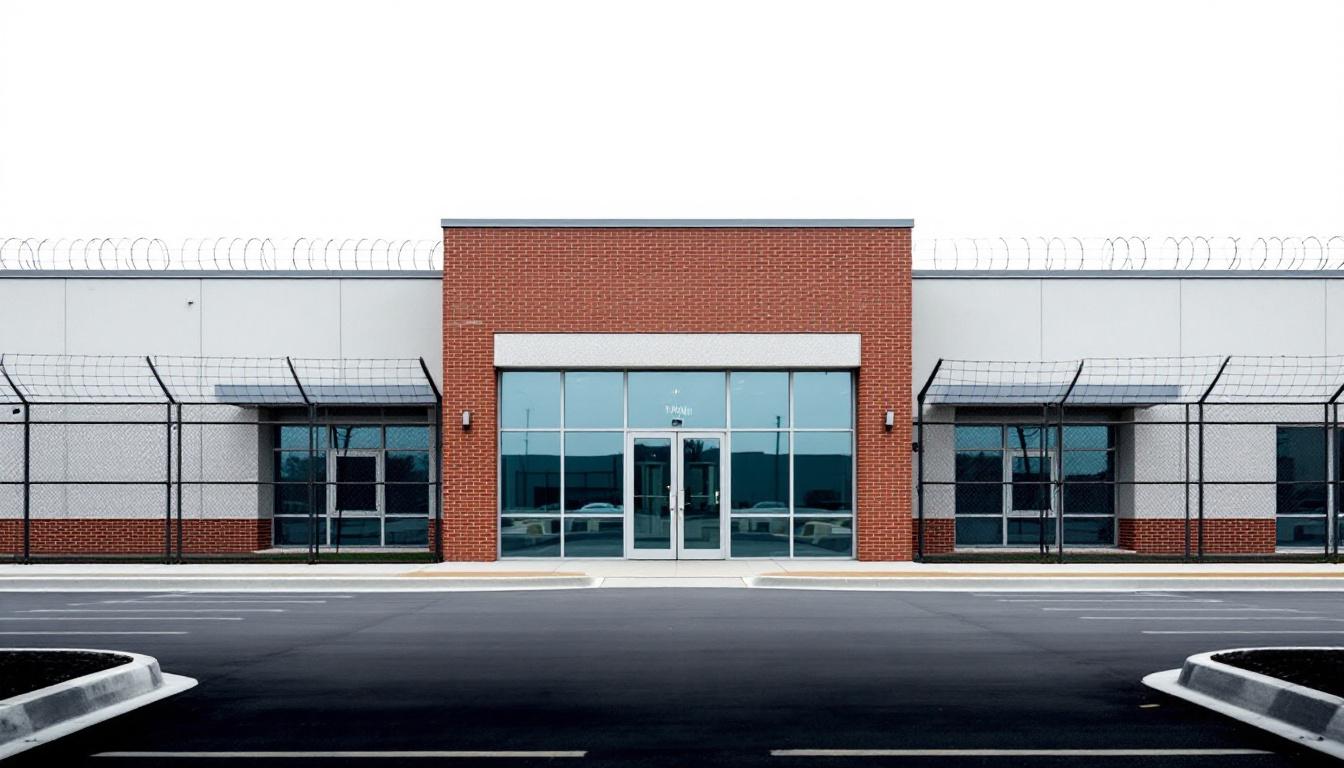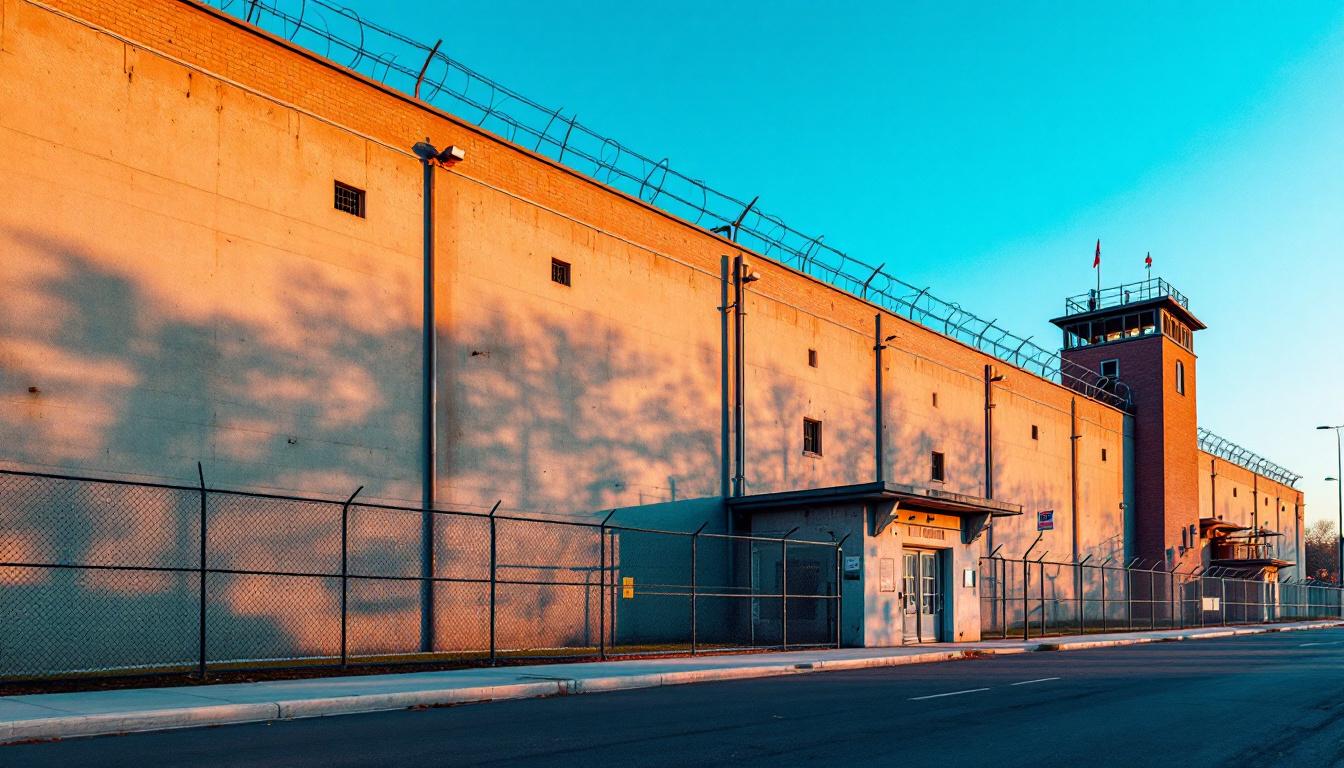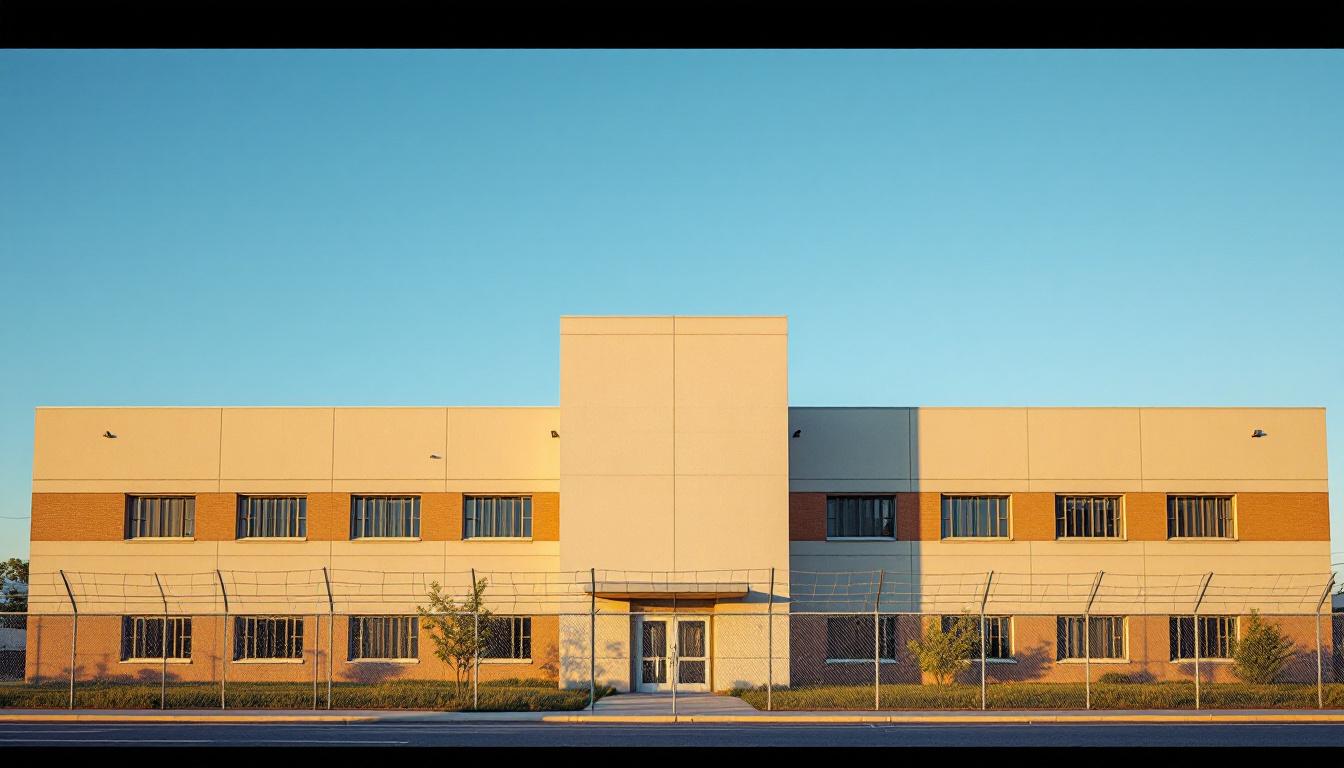
Quick Navigation
How to contact an inmate at Union Parish Detention Center
This comprehensive guide will walk you through how to connect with an inmate at Union Parish Detention Center. Follow the steps below to find an inmate and send letters and photos:
- Search for the inmate using our search tool below
- Create your account or log in to Penmate
- Write your message (up to 6,000 characters)
- Send instantly - inmates receive printed copies daily
Find an Inmate
Search for an inmate to start communicating today
Tip: You can search by first name, last name, or inmate ID number
To contact a person at Union Parish Detention Center start by searching for the person on the official facility website. Perform a search by following these steps:
- Step 1: Enter their first name and last name into the search form and click "Search"
- Step 2: Locate their inmate record
- Step 3: Write down their Inmate ID and any housing information provided
Important! Be sure to enter the person's full name. Nicknames should not be used.
How to Send Messages to Inmates

You can use your phone or computer to send emails, letters, and photos to an inmate. Messages are sent electronically to inmate tablets or kiosks at the facility. If you would like to send a message, start by searching for an inmate at Union Parish Detention Center.
Sending Photos and Postcards

A great way to send love and support to a loved one at Union Parish Detention Center is to send photos and postcards. It only takes a few minutes to send photos from your phone and it makes a huge difference. You can also mail postcards with words of support and inspiration, or design your own postcard for special moments like birthdays and holidays.
Important! Be sure not to send any explicit photos or they may not be approved by the facility. You can also use a photo printing app like Penmate to make sure your photos are printed at the correct size (4x6 or 3x5) and are mailed according to the rules and regulations of Union Parish Detention Center.
Frequently asked questions about Union Parish Detention Center
-
How long does it take to deliver a message?
If you're sending an email message your letter is usually delivered within 24-48 hours. For messages sent via mail you should expect delivery within 3-7 days. All messages will need be approved by Union Parish Detention Center.
-
How much does it cost to send a message to Union Parish Detention Center?
You can send a message free using your phone or mail a message via USPS for the price of a $0.60 stamp and envelope. You can also purchase credits or e-stamps from services starting at $1.99.
-
What services can I use to contact an inmate at Union Parish Detention Center?
Penmate
You can use Penmate to send letters and photos to an inmate from your phone. It's an easy way to stay in touch during your loved one's incarceration. Use the inmate locator to find an inmate's location and contact information, then you can send messages within a few minutes.
Securus messaging
Securus may be another option for communicating with an inmate at Union Parish Detention Center. You can create a friends and family account and purchase credits to send messages. All messages will be reviewed and must be approved by the facility.
JPay
Some county jails and state prisons may support sending messages with JPay. You must register an account with the system, find your loved one, and purchase stamps to send messages. For some locations you can also attach photos.
Smart Jail Mail
You may also check if Smart Jail Mail is available at Union Parish Detention Center. Smart Jail Mail is operated by Smart Communications and has contracted with some state and county jails. After purchasing credits, your messages and photos are sent to the facility, printed out, and then handed out to your loved one.
-
What is the mailing address of Union Parish Detention Center?
Mailing address:
Union Parish Detention Center
707 Rodeo Circle
Farmerville, LA 71241
Phone: (318) 368-9827Business hours:
- Monday: 9:00 AM – 5:00 PM
- Tuesday: 9:00 AM – 5:00 PM
- Wednesday: 9:00 AM – 5:00 PM
- Thursday: 9:00 AM – 5:00 PM
- Friday: 9:00 AM – 5:00 PM
- Saturday: Closed
- Sunday: Closed
-
What are the visiting hours at Union Parish Detention Center?
Visiting hours at Union Parish Detention Center vary by housing unit and security level. Generally, visits are scheduled on weekends and holidays, with some facilities offering weekday visits. Contact the facility directly at (318) 368-9827 or check their website for the current visiting schedule. Visits typically last 30-60 minutes and must be scheduled in advance.
-
What items are prohibited when sending mail to Union Parish Detention Center?
Prohibited items typically include: cash, personal checks, stamps, stickers, glitter, glue, tape, staples, paperclips, polaroid photos, musical or blank greeting cards, hardcover books, magazines with staples, and any items containing metal or electronics. Only send letters on plain white paper with blue or black ink. Photos must be printed on regular photo paper (no Polaroids). Always check with Union Parish Detention Center for their specific mail policies.
-
How do I send money to an inmate at Union Parish Detention Center?
You can send money to an inmate at Union Parish Detention Center through several methods: 1) Online using JPay, Access Corrections, or the facility's approved vendor, 2) Money orders mailed directly to the facility with the inmate's name and ID number, 3) Kiosks located in the facility lobby, or 4) Over the phone using a credit or debit card. Fees vary by method, typically ranging from $2.95 to $11.95 per transaction.
-
Can I schedule a video visit with an inmate at Union Parish Detention Center?
Many facilities now offer video visitation as an alternative to in-person visits. At Union Parish Detention Center, video visits may be available through services like Penmate, Securus Video Connect, GTL, or ICSolutions. Video visits typically cost $10-20 for 20-30 minutes and must be scheduled in advance. You'll need a computer or smartphone with a camera and reliable internet connection. Contact the facility for their specific video visitation policies and approved vendors.
-
What identification do I need to visit an inmate at Union Parish Detention Center?
All visitors must present valid government-issued photo identification such as a driver's license, state ID, passport, or military ID. Minors must be accompanied by a parent or legal guardian who can provide the minor's birth certificate. Some facilities require visitors to be on the inmate's approved visitation list, which may require a background check. Contact Union Parish Detention Center for specific ID requirements and visitor approval procedures.
-
How can I find out an inmate's release date?
To find an inmate's release date at Union Parish Detention Center, you can: 1) Use the online inmate search tool if available, 2) Call the facility's records department, 3) Contact the inmate's case manager or counselor, or 4) Have the inmate provide this information during a call or visit. For privacy reasons, some facilities only release this information to immediate family members.
Facility Overview
Contact Information
Union Parish Detention Center707 Rodeo Circle
Farmerville, LA 71241
Phone: (318) 368-9827
Official Website
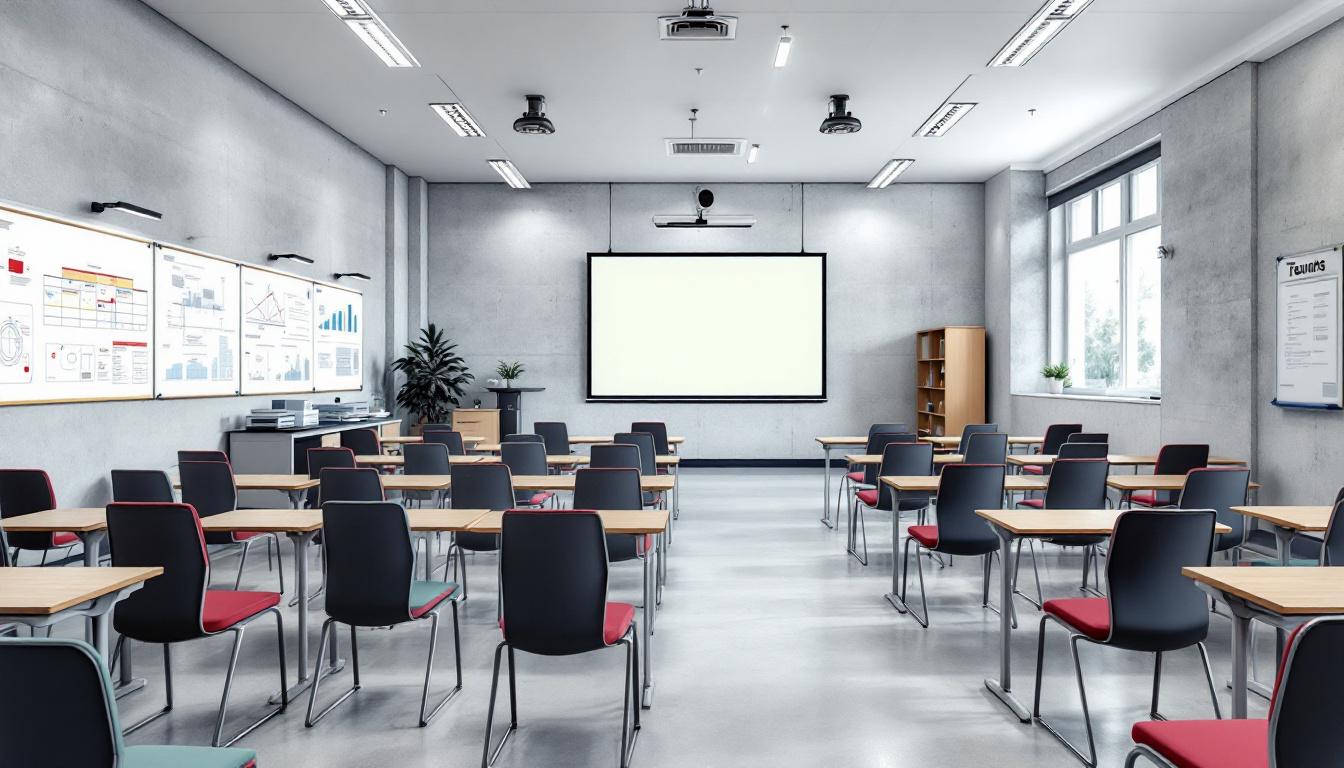
About Union Parish Detention Center
Correctional facilities within Texas's comprehensive detention network serve as essential components of the state's criminal justice infrastructure, with Paul Phelps Corr. Center, La representing a significant institutional presence in the southeastern region. Located in Dequincy, this TX correctional facility operates within a broader framework designed to address both public safety requirements and offender rehabilitation needs through evidence-based approaches to incarceration management.
The facility's position within the regional corrections network reflects Texas's commitment to maintaining secure detention environments while supporting the population services that facilitate eventual community reintegration. Evidence-based programming typically encompasses educational opportunities, vocational training initiatives, and behavioral intervention services that may include substance abuse counseling and mental health support. These comprehensive rehabilitation efforts generally focus on developing practical skills and addressing underlying factors that contribute to criminal behavior, thereby supporting successful transitions back into society.
Dequincy's geographic location provides strategic advantages for family visitation and community connections, elements that research consistently identifies as crucial factors in reducing recidivism rates. The correctional facility typically maintains structured daily routines that may include work assignments, educational programming, and therapeutic services designed to promote personal accountability and positive behavioral changes. Through coordination with regional social services and community organizations, the institution generally supports continuity of care that extends beyond the period of incarceration, recognizing that effective corrections outcomes depend on comprehensive support systems that bridge institutional and community environments.
Programs & Services
Through carefully structured support systems, the population at Paul Phelps Correctional Center receives comprehensive assistance designed to address both immediate needs and long-term reintegration goals. The facility's approach emphasizes holistic development, recognizing that meaningful rehabilitation requires addressing multiple aspects of an individual's circumstances. Programs typically focus on building practical skills while simultaneously fostering personal growth and community connections that may prove essential upon release.
Educational and vocational training opportunities form the cornerstone of the center's rehabilitative efforts, providing the population with marketable skills that often translate directly into employment prospects. Vocational training programs may supply hands-on experience in various trades, while work programs allow participants to develop professional competencies within a structured environment. Also available are upholstery training initiatives, which typically combine technical skill development with the satisfaction of creating tangible products that serve the broader facility community.
Support services extend beyond skill-building to encompass the emotional and spiritual dimensions of rehabilitation. Faith-based initiatives often provide a foundation for personal reflection and community building, while conflict resolution programs may supply participants with essential tools for managing interpersonal challenges both within the facility and in their future communities. Additionally, laundry services and similar operational programs typically offer the population opportunities to contribute meaningfully to daily facility operations while developing work habits and responsibility that may prove invaluable during their transition back to society.
Daily Life & Visitation
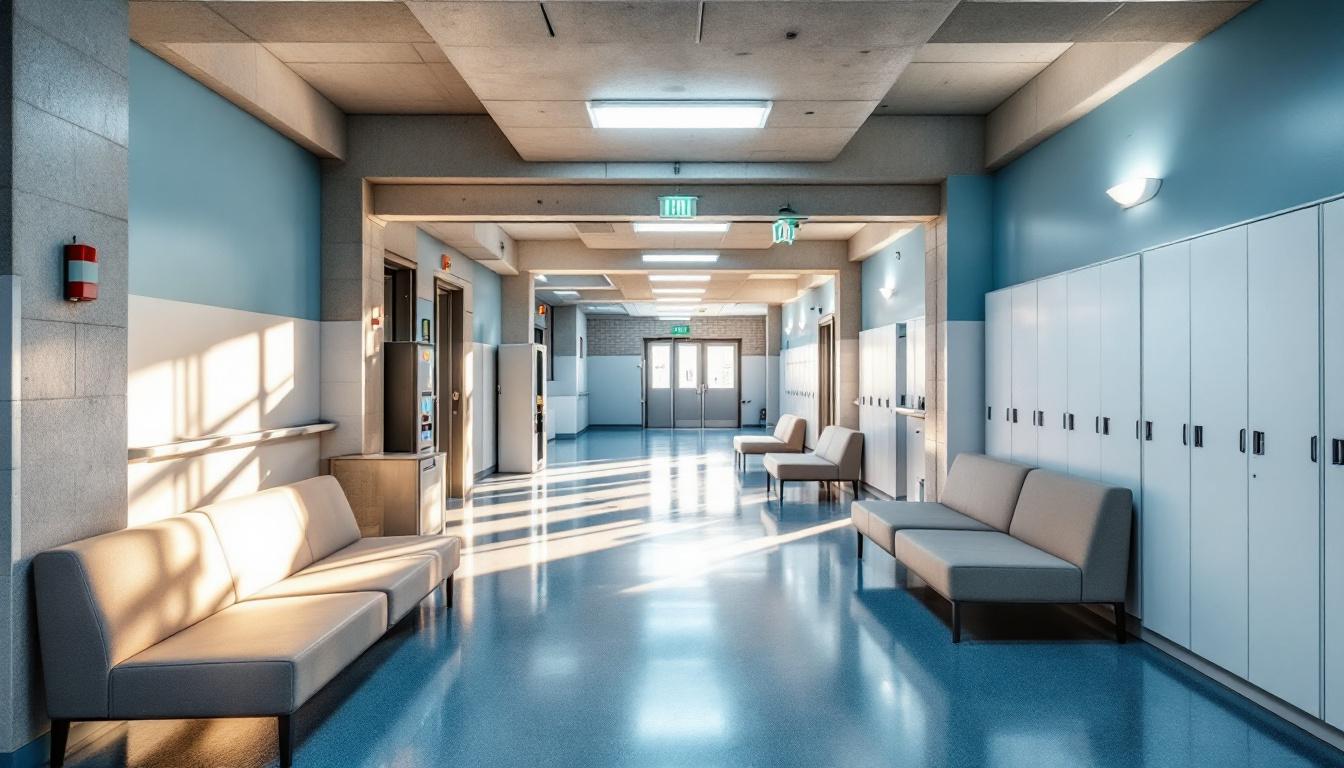
A carefully orchestrated system of schedules and protocols shapes every aspect of life within the facility, where structured routines currently provide the framework that guides the population through each day. The institution continues to operate on a regimented schedule that typically begins with early morning counts and meal service, followed by work assignments, educational programming, and recreational periods that supply essential structure to daily activities. This organizational approach generally ensures that residents understand expectations while maintaining the security and operational efficiency necessary for institutional management.
Living accommodations at the facility typically consist of housing units designed to accommodate the population in dormitory-style or cell-based arrangements, depending on classification levels and security requirements. The population generally resides in units that may offer varying degrees of privacy and personal space, with common areas that supply opportunities for social interaction during designated periods. Also, dining arrangements usually follow scheduled meal times in centralized locations, where the population receives nutritionally planned meals that meet dietary guidelines, and residents may typically access commissary services to supplement their basic provisions with approved personal items and snacks.
However, daily life extends beyond basic necessities through programming that often includes work assignments in areas such as facility maintenance, food service, or institutional operations that supply valuable skills and structure. The population may typically participate in educational opportunities, vocational training, and recreational activities that often include access to exercise facilities, library services, and organized sports during designated periods. Also, family connections continue to be maintained through scheduled visitation programs and communication options that generally include telephone access and correspondence, allowing residents to preserve important relationships while serving their sentences within the facility's structured environment.
Ready to Connect?
Start communicating with your loved one today
Search for an Inmate
